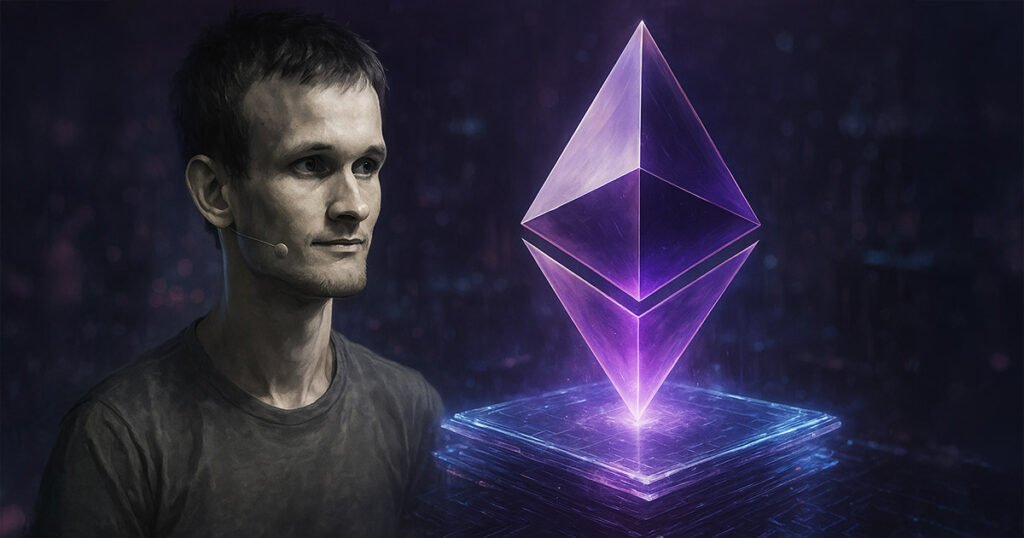Ethereum’s New Gas Limit Proposal: Enhancing Network Stability and Security
Ethereum, one of the leading blockchain platforms, is continuously evolving to enhance its security and efficiency. A new proposal, Ethereum Improvement Proposal (EIP) 7983, has been introduced by co-founder Vitalik Buterin and Toni Wahrstätter from the Ethereum Foundation. This proposal seeks to set a maximum gas limit for individual transactions, entering an essential phase in Ethereum’s efforts to improve its overall resilience against potential threats while also boosting network stability and predictability in transaction processing costs.
Understanding EIP 7983: A Critical Change
The EIP 7983 proposal introduces a cap of 16.77 million gas for single transactions, which is a significant reduction from the previously suggested 30 million gas limit in EIP 7825. This new limit aims to enhance Ethereum’s security by protecting against Denial of Service (DoS) attacks, which pose a substantial threat to network integrity. By invalidating transactions that attempt to exceed this gas limit during the validation process, the proposal seeks to streamline operations across the Ethereum network, regardless of gas limits set by miners or validators.
Transaction Validation and Network Efficiency
One of the major pillars of EIP 7983 is the proposal’s capability to limit transaction gas usage to a manageable level. Transactions that specify a gas limit above the established cap will be invalidated, ensuring that any block containing such transactions will also be rendered invalid. This key restriction is designed to prevent high gas consumption by individual transactions, which can lead to unbalanced load distribution and negatively impact overall network performance.
Further emphasizing the importance of mitigating these risks, Buterin and Wahrstätter argue that the chosen gas limit strikes a suitable balance between accommodating complex transactions and ensuring predictable execution. As a result, users and decentralized applications (dApps) may need to break down high-gas transactions into smaller, more manageable operations. However, the authors anticipate that only a minimal number of users will be impacted since most current transactions fall below the new limit.
Why Setting a Transaction Gas Limit Matters
In the current architecture of Ethereum, transactions can theoretically take up the entire gas limit of a block, a design feature that poses several risks, including increasing vulnerability to DoS attacks. Cybercriminals can exploit this architecture to bombard the network with transactions, creating service disruptions for genuine users. By implementing a gas limit, Ethereum aims to not only reduce the likelihood of these attacks but also promote better load distribution across transactions in a block, thus enhancing overall network stability.
The absence of a gas limit can also lead to longer block verification times, which adversely affects user experience. Therefore, establishing a transaction gas limit will directly address these issues, making the Ethereum network more robust and user-friendly.
Advantages of the New Gas Limit Implementation
Beyond immediate protective measures against DoS attacks, setting a transaction gas limit offers several broader benefits. According to the proposal, limiting gas usage will create a fair allocation of resources among transactions within a block. By ensuring that no single transaction can hog bandwidth, the proposal intends to make block validation processes more predictable and efficient.
A particularly noteworthy advantage of this proposed limitation is its compatibility with zero-knowledge virtual machines (zkVMs). By encouraging transaction sizes to be smaller, the proposal facilitates better participation in distributed proving systems. This, in turn, promotes predictability within zkVM circuit design—a substantial benefit for developers working with complex transactions.
Enhancing Ethereum’s Future with EIP 7983
As Ethereum continues its journey toward a more secure and efficient ecosystem, the introduction of EIP 7983 represents a proactive measure to combat potential threats. With its anticipated positive effects on transaction predictability, network stability, and a balanced distribution of resources, this proposal is destined to play a crucial role in Ethereum’s ongoing development. Furthermore, the enhanced compatibility with zkVMs adds a layer of innovation, potentially setting the stage for future advancements within the blockchain community.
As Ethereum’s technology evolves, so too does its approach to maintaining a secure and stable environment for users. The collective insight provided by Buterin and Wahrstätter through EIP 7983 is pivotal, highlighting an important step towards not just current requirements but also future scalability and functionality. Their dedication reflects the core mission of the Ethereum Foundation: to create a decentralized platform that serves its users effectively and securely.
In conclusion, the proposal for a maximum gas limit will reshape transaction validation on the Ethereum network, reinforcing its stability and security while opening new avenues for transaction processing. As we move forward, it will be fascinating to observe how these changes unfold and the further innovations they might inspire within the Ethereum ecosystem.

















